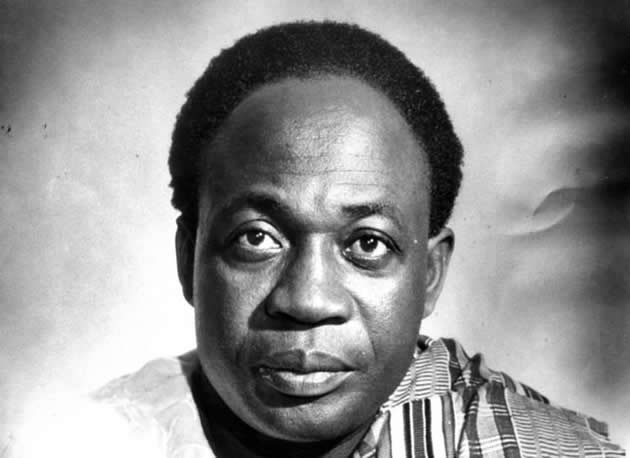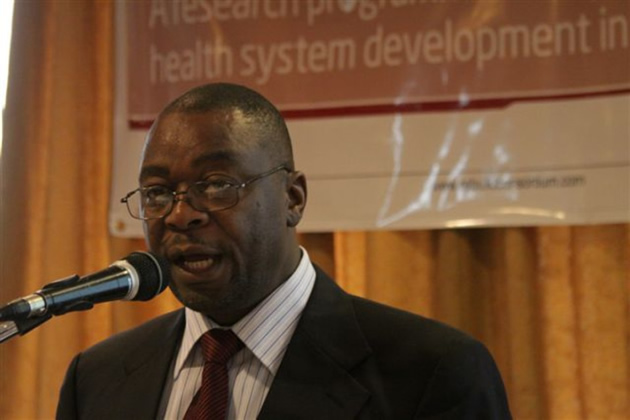Time we correct bloody system we inherited


Nkame Nkrumah
Reason Wafawarova Correspondent
For how long shall violence and bloodletting be associated with elections in Africa? This is a question most Africans concerned with how the continent is governed have been asking since the fall of colonial empires in the early 1950s.
The script of incumbent leaders making constitution manoeuvres to retain power; of privileged access to the voters, vote buying, dodgy vote counting, intimidation and post-election riots and massacres cannot be told without it being associated with the dark shadow of African politics.
That is sad.
We have post-election protests in Kenya right now and over 20 people have lost their lives unnecessarily.
We simply cannot hold any election where nobody can emerge as somebody without knowing anybody.
Our politicians from across the divide want to influence democratic institutions so they can manipulate the electoral process in their favour.
Right now there are serious divisions in Kenya’s electoral body, the IEBC.
The head of the electoral body Wafula Chebukati says there are commissioners and IEBC officials “that must stand aside” to allow the possibility or prospect for a credible re-run election.
The two main political parties, Jubilee and the NASA coalition are at each other’s throats, lobbying for or against the removal of the said officials.
Clearly, the presence or absence of such officials has the same bearing — it favours and enhances the chances of either of the political parties, depending on what eventually prevails.

Julius Nyerere
Our elections are a predictable script; so much that the electoral cycle now resembles a religious ritual, climaxing in the sacrifice of human lives.
We, the 54 colonies fabricated by Europeans and Americans in Berlin in 1985, now call ourselves sovereign states, yet in that illusion of sovereignty, all we do is thrash to ashes the individual freedoms of our people, thwart their collective will, manipulate their rights and impose upon them the selfish desires of a powerful few.
At the dawn of independence, leaders like Kwame Nkrumah advocated for the abolishing of inherently anti-democratic and deadly systems created by the colonisers, but political stalwarts like Julius Nyerere and Jomo Kenyatta would hear none of that.
Everyone was craving for fiefdom power in the very fabricated “countries” we call members of the African Union today.
Now it appears our bloody elections are part of the tribute we pay for making a fetish of our colonial inheritance, and we proudly keep calling ourselves a self-ruling continent.
How many countries in Africa contribute to the notorious list of electoral deaths? We have to come to a point where we must admit that our problem in Africa is systemic and we can only solve it by adopting a new political order and system, not this tribal dichotomy created and promoted by the structure we inherited from our enslavers and colonisers.
Colonel Gaddafi was passionate about this matter and part of why he was murdered by France, Britain and America was to thwart the dream of a United States of Africa.

Jomo Kenyatta
Apart from the colonisers, his worst critics were within the continent, the likes of President Yoweri Museveni in Uganda and even the South Africans.
We cannot solve systemic problems by improvising solutions. The reason Kenyans are openly fighting over who should be in control of the IEBC is simple.
They do not get it when one talks of an independent electoral commission, or any other independent democratic institution.
They do not get it not because they are not intelligent enough to comprehend the meaning of independent democratic institutions, but because they are not structured enough to understand the importance of nationhood and collectiveness of common purpose.
Africa requires solutions that go back to institutional causes and surely eloquence of speech in emulation of Martin Luther King will not solve an iota of our institutional problems.
We would hire Obama for a fix if that worked.
We have malfunctions that are as serious as to cause predictable and regular bloodletting and in such situations, what we need is a total replacement of the institutional order, not just pretending to be fixing some defective part.
Kenya does not need to fix who sits where in the IEBC in order to correct the perennial challenge of electoral complications.
Kenya needs to understand that its governance is beyond tribal languages and identities, that its common destiny cuts across the tribes found in that country.
The image of Jomo Kenyatta on the Kenyan shilling must be seen as the image resembling the founding father of the Kenyan nation, not the face of a Kikuyu insulting the eyes of a Luo.
There is no founding father of any nation who was ever born to every tribe making up that nation.
Even George Washington had a tribe and a family far removed from the tribes and families of other Americans, but it would be foolish to argue for the removal of his image from the American currency on the basis of where he was born and by whom.
Perhaps the colonial state system has failed, or it has exhausted its potential.
Perhaps it has become incapable of regeneration. We as Africans have inherited a bloody system and perpetuated it instead of correcting it.
When things come to a head, our leaders express shock, albeit feigned; and we always talk about bringing the contending parties together for peace talks aimed at getting the protagonists to share the power each sought to monopolise.
We saw it with Kenya and Zimbabwe that the eventuality of power sharing is failure. All we had in the two countries was a recess and postponement of the crisis to a later date and both countries have now caught up with the reality of the initial crisis.
We need to find out the real causal factors behind our democratic deficit.
Our electoral processes in Africa are often violent because they are essentially desperate fights between ambitious elites in an impoverished population and everything is turned into a fight for control over resources.
Scarcity is the biggest weapon of the African politician, not wealth, nor hope.
Africa we are one and together we will overcome. It is homeland or death!!
Reason Wafawarova is a political writer based in SYDNEY, Australia









Comments